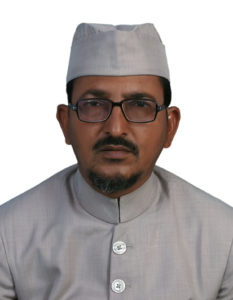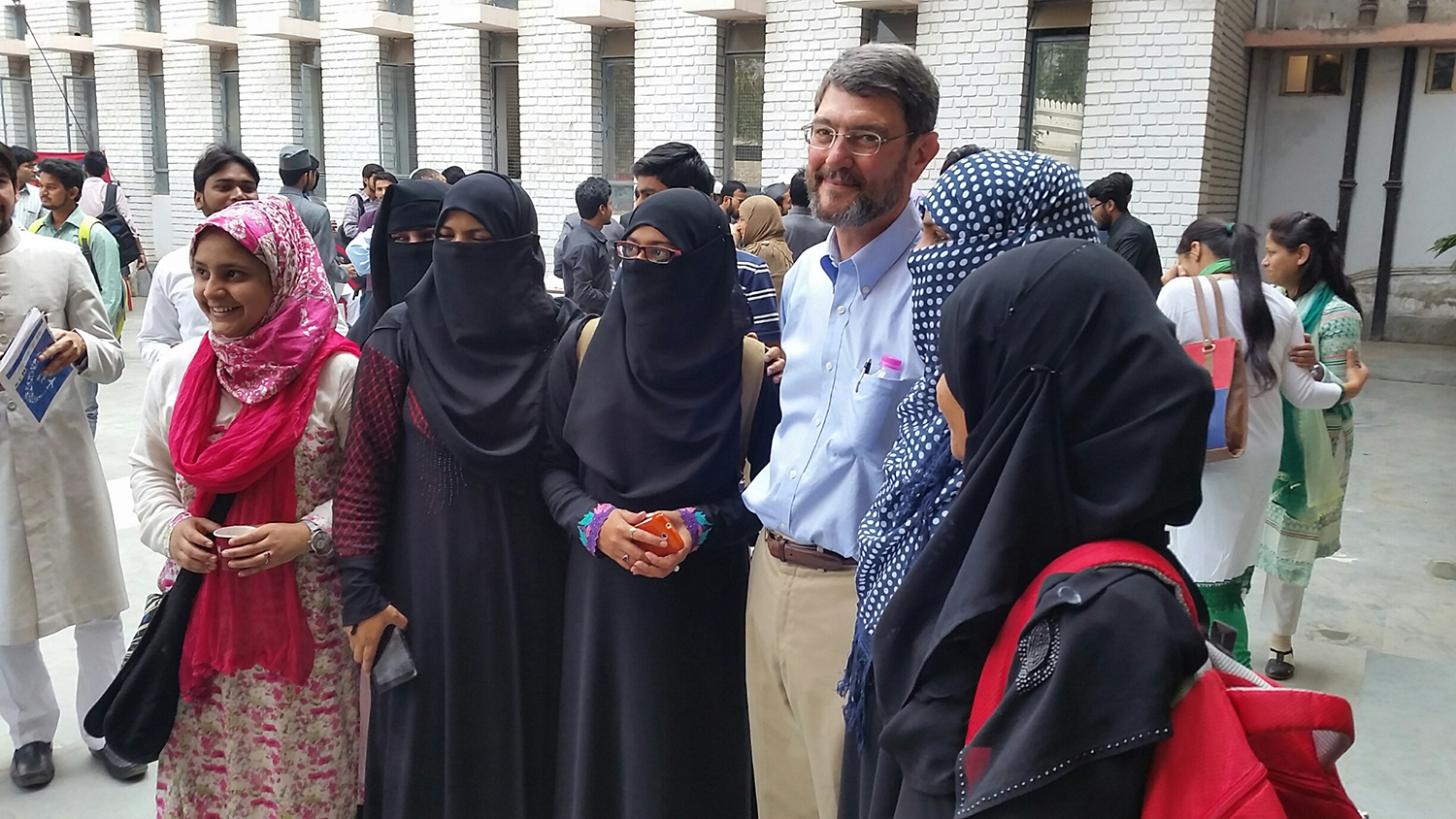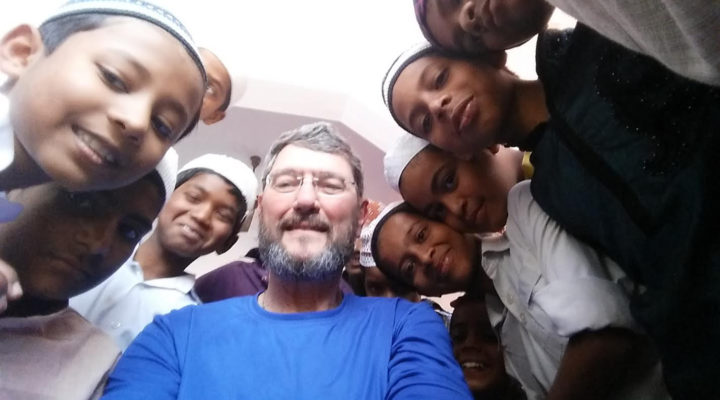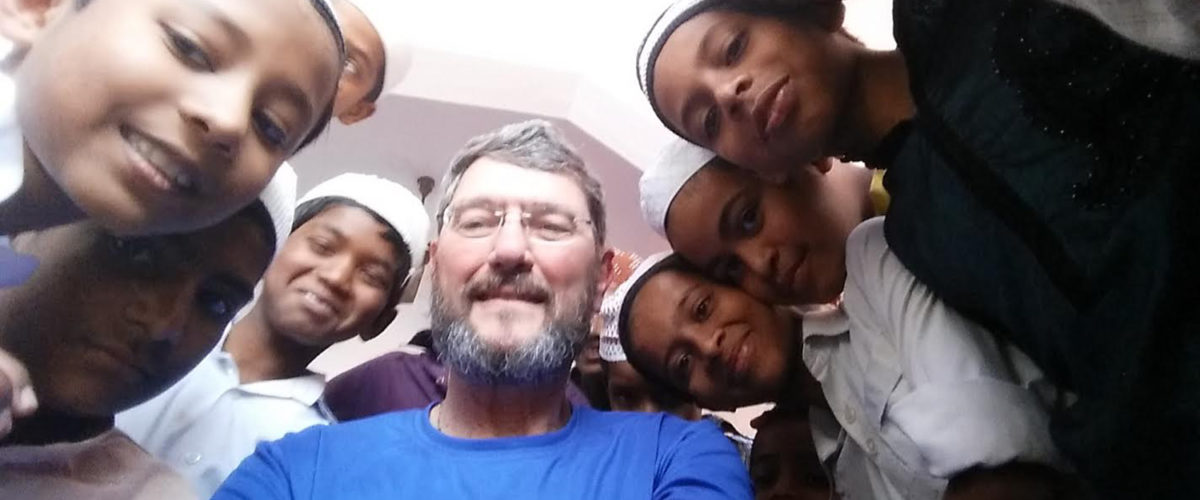A scholar swap between a Baptist seminary in Georgia and an Islamic university in India uncovered a mirror image of mistrust and confusion between Christians and Muslims in both countries.
The professors — Loyd Allen of Mercer University’s McAfee School of Theology in Atlanta, and Towqueer Alam of Aligarh Muslim University — told Baptist News Global they were warmly treated at their host schools and nations.
But whenever the men opened up their respective courses and lectures to questions — or when they dined in people’s homes — the inquiries almost always were the same: why do their religions promote hostility?
 “There were many misunderstandings of Islam as a religion of violence, of terrorism, whose followers are violent and terrorists,” said Alam, a professor of Sunni theology at Aligarh, which prepares students to become imams. He has been lecturing at Mercer and McAfee since April 8 on Muslim and Quranic understandings of Jesus and Christianity.
“There were many misunderstandings of Islam as a religion of violence, of terrorism, whose followers are violent and terrorists,” said Alam, a professor of Sunni theology at Aligarh, which prepares students to become imams. He has been lecturing at Mercer and McAfee since April 8 on Muslim and Quranic understandings of Jesus and Christianity.
Allen had similar experiences while teaching Christian history at Aligarh Feb. 28 to March 20.
“I would always be asked if Christianity is a peaceful religion, then why does America sometimes kill innocent people by drones and attacks in Afghanistan and the like?” Allen said.
Putting a face on faith
Uncovering and addressing these and other questions was the main goal of the faculty exchange between the two schools, said Rob Nash, interim dean at McAfee.
The semester-long visits by two very personable, expert and articulate scholars helped humanize Islam and Christianity for students at the two clergy training schools, Nash said.
“There is so much misunderstanding about Christianity and about why Christians don’t stand up against what we see and hear from [anti-Muslim] politicians,” Nash said.
In addition to Christian history, Allen lectured on spiritual formation, Christian scripture and the Quran and on Christianity in America. He served as the keynote speaker at the Aligarh Conference on Islamophobia. He also traveled to speak on Islamophobia and interfaith issues at other universities and mosques.
It’s difficult to measure the positive seeds sewn by Allen during his time in India, Nash said.
“Through Loyd Allen, Muslims put a face on Christianity and put a face on the peace and love of Jesus,” he said.
Alam had a similar impact during his time in Georgia, Nash added.
The Muslim scholar has met with Mercer faculty and staff, toured the metropolitan Atlanta area and visited the university’s main campus in Macon, Ga., as well as numerous churches. Alam delivered guest lectures and participated in a tree-planting ceremony in the interfaith prayer garden and labyrinth at Mercer’s Atlanta campus.
“Dr. Alam was able to put a face on Islam” and allowed McAfee students to see “a person who very powerfully speaks about the peace and goodness of God that infuses the Muslim faith,” Nash said.
Understanding Allah and the Trinity
Alam said he has made it a priority in the United States to emphasize Quranic and other Muslim teachings that condemn violence.
“I responded that Islam means peace …,” he said in reference to many of the questions he fielded from Christians. “If anyone kills or murders without a justified cause, it is as if he killed all mankind.”
Likewise, if anyone helps or enlightens another person, “it is as if they have enlightened all mankind,” Alam said.
He also lectured extensively on the place of honor that Jesus holds in Islam.
“A Muslim can never be called a Muslim unless or until all prophets, including Jesus, are accepted,” he said. “The Islamic view of Jesus is that of a prophet — a prophet of Allah.”
The exchange was also educational for the educators involved, Allen said.
“I discovered … there is a real need to distinguish between the culture of the country you are in, the nature of the religion — Islam — that you are dealing with, and the political or national questions that arise,” he said.

Loyd Allen with Muslim women in India. Allen taught at a Muslim university there earlier this year as part of a scholar exchange program. (Photo courtesy of Loyd Allen)
About 50 percent of the students at Aligarh are women, even though they cannot use their master’s level education to become imams, Allen said.
“These women take seriously the family, which is the heart of their religion,” he said. “So they seek to be educated to be better mothers and wives.”
Students at Aligarh were very interested in the Trinity.
“They would say, ‘How can you believe in one God and believe Jesus is the son of God?’”
It’s a difficult concept for Muslims to grasp because Islam holds the unity of God as its central concept, Allen said.
Allen said his experience in India made him a better Christian.
“It helped me to articulate what it is I mean when I talk about being a follower of Jesus, what I mean when I say scripture is inspired and authoritative,” he said.


